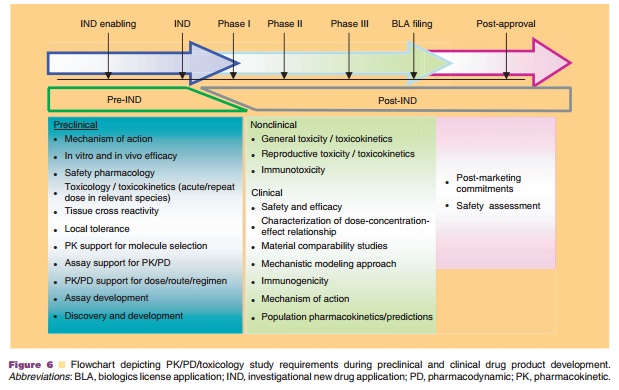Chapter: Pharmaceutical Biotechnology: Fundamentals and Applications : Monoclonal Antibodies: From Structure to Therapeutic Application
Translational Medicine/Development Process
TRANSLATIONAL MEDICINE/DEVELOPMENT PROCESS
The connection between basic and clinical sciences is an essential part
of translational medicine, the purpose of which is to translate the knowledge
obtained from basic science into practical therapeutic applications for patients.
This knowledge transfer is also often refered to as
“bench-to-bedside”transition of scientific advancements into clinical
applications. This framework of translational medicine is applied during the
discovery and drug development process

of a specific antibody against a certain disease. It includes major
steps such as identifying an important and viable pathophysiological target
antigen to modify the disease in a beneficial way, producing mAbs with
structural elements providing optimal PK, testing the mAb in non-clinical
safety and efficacy models, and finally clinical studies in patients. An
overview of the development phases for a molecule and various activities in the
PK/PD/toxicology areas is outlined in Figure 6. Furthermore the critical
components of the entire development process of mAbs from a PK/PD perspective
are explained in details in the following sections.
Related Topics